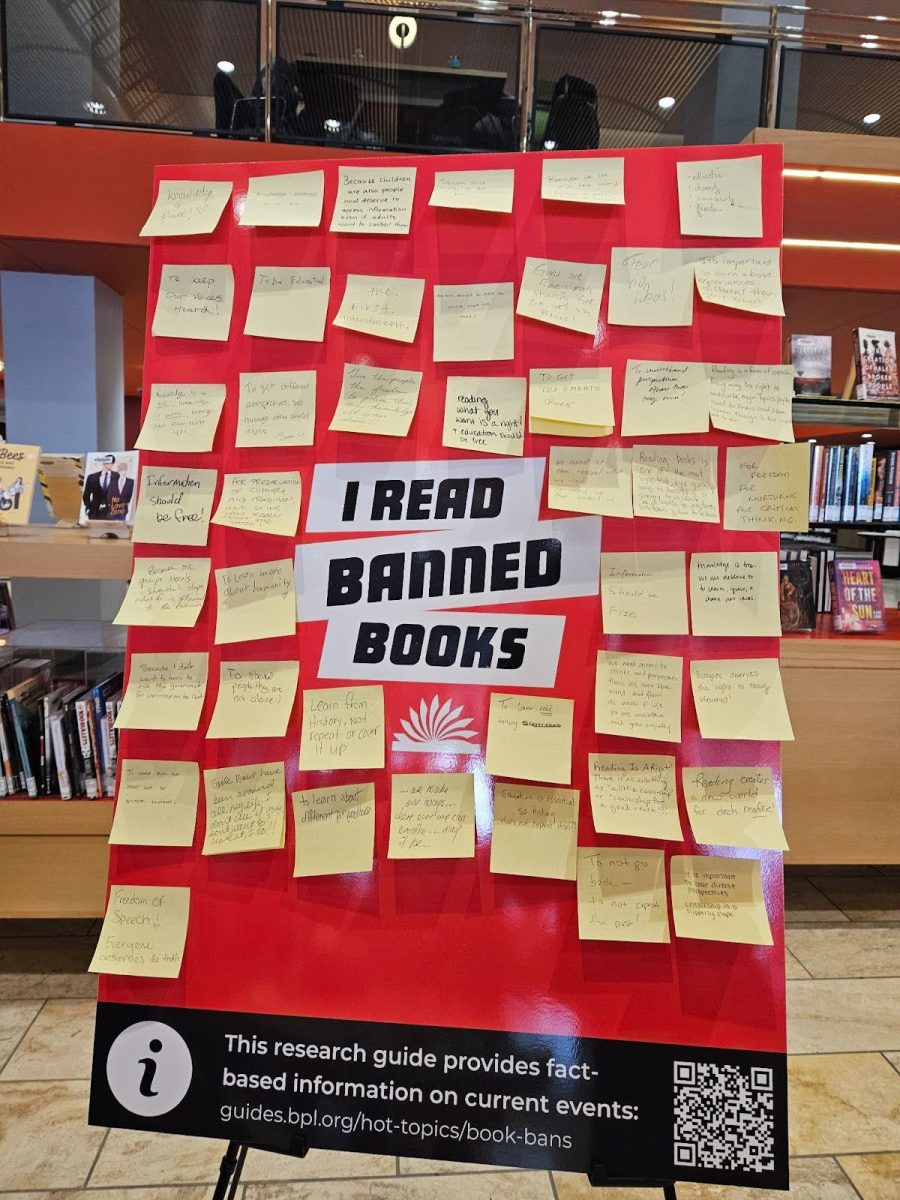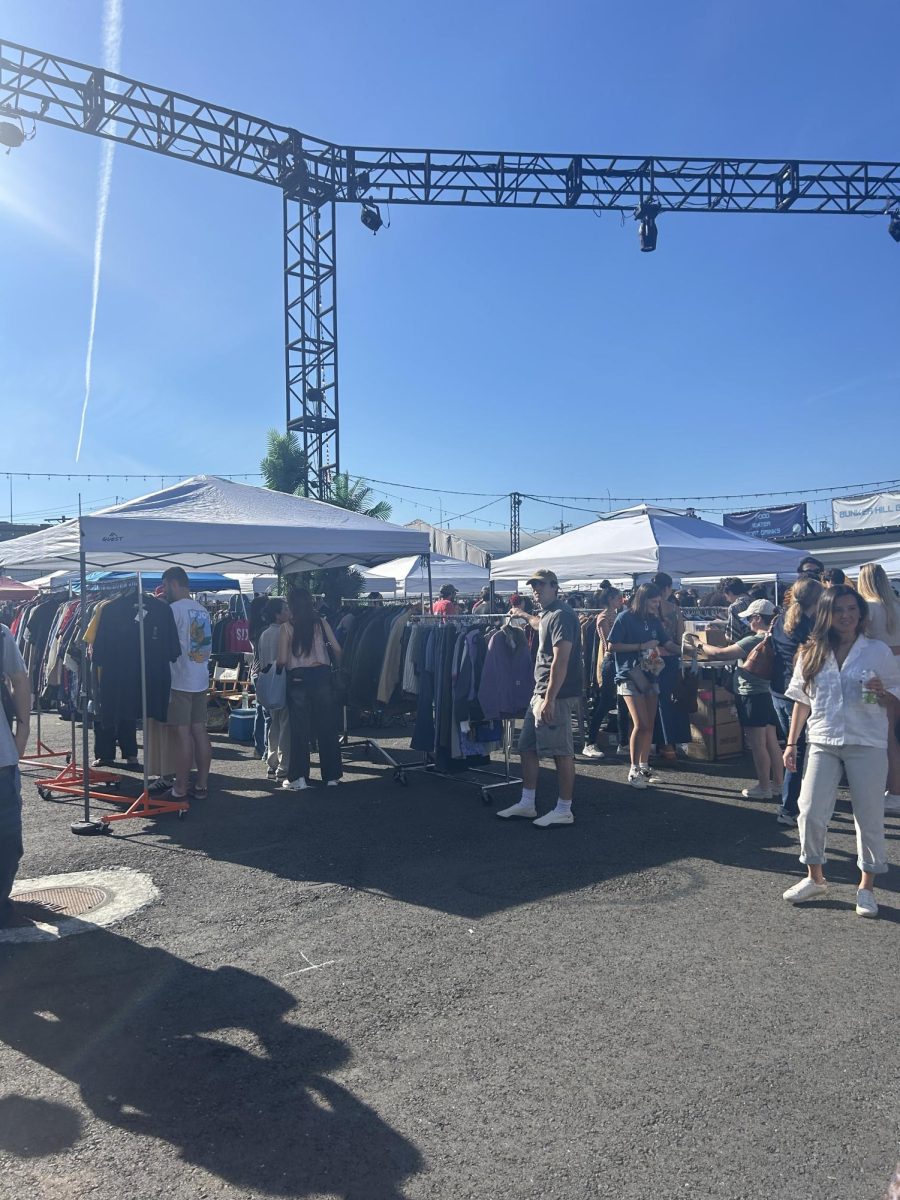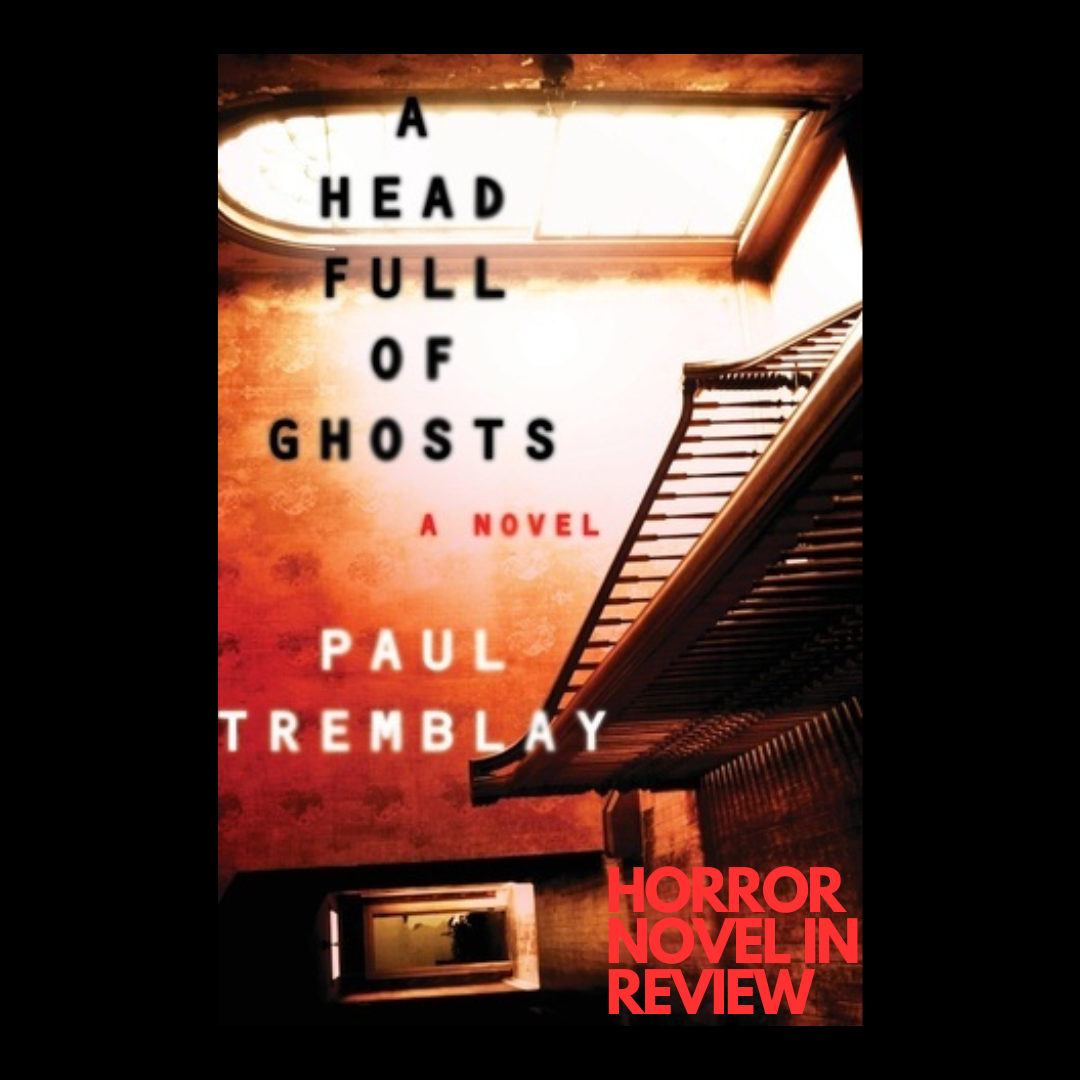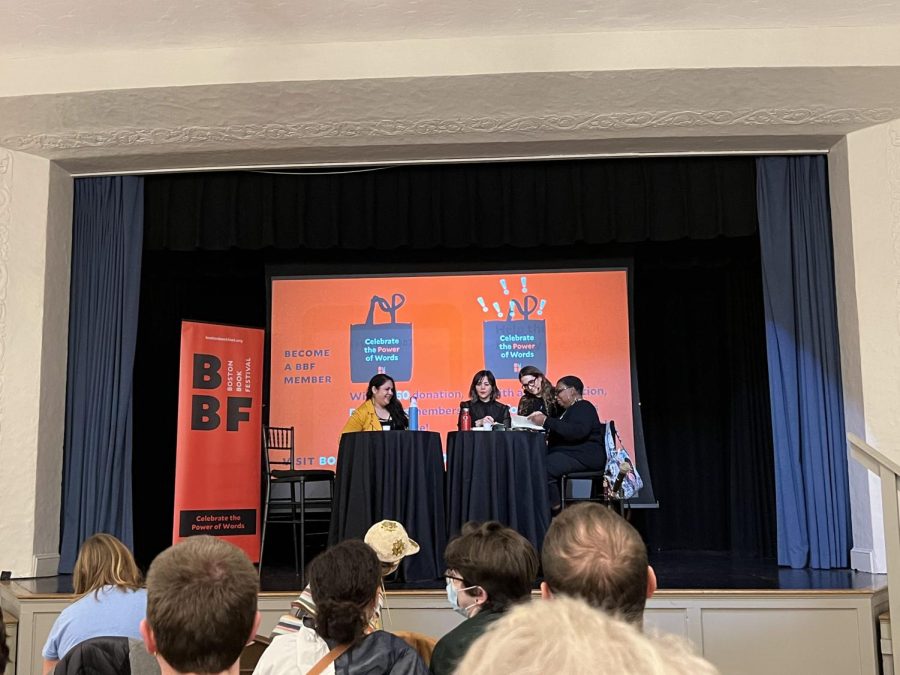Patrons both familiar with and novel to the concept of banned books may have stumbled upon the Banned Books Read-In held Oct. 4 from 2:00 to 4:00 p.m. in The Boston Public Library’s Central Branch in Copley Square. The library designated an area in the center of their “New and Novel” section for the event. Here, anyone visiting the library could grab a banned book from the display, find a comfortable spot and join the read-in.
The display itself showcased many banned books, such as James Baldwin’s “Go Tell It On The Mountain,” John Green’s “Looking For Alaska” and Dean Atta’s “The Black Flamingo.” Interestingly, the recently banned “Pinkalicious” by Victoria Kann and Elizabeth Kann was not in the library’s display.
In addition to the many books on display, there was also a poster board where passersby were encouraged to scan a QR code that would bring them to the “hot topics” section of the research guides page on the BPL website. They were also asked to place sticky notes detailing why they believed it was important to read banned books. Most of the notes on the board related to a desire for freedom of education, knowledge and speech, a desire to understand and learn from others and the importance of looking back to avoid the mistakes of the past.
Sticky notes on the board read statements like “For preservation of culture and traditions, and so we can learn from the past,” “Knowledge belongs to us all” and “We cannot let them control what we read. We cannot let them control us.”
Sheldon, a patron who stayed for the entire duration of the read-in, decided to pick up “Lolita” by Vladimir Nabokov for the first time. He says that “the prose style is absolutely exquisite. Clearly, it is the subject that makes this book so controversial.” When asked about the BPL’s efforts to raise awareness of book banning, Sheldon said, “It is certainly in the purview of a library to discuss banned books.”
When asked about banned books, Sheldon stated that “In general, banned is a very broad term which covers all manners of treatment from legal foreboding, such as how ‘Mein Kampf’ has historically been illegal to print and read in Germany, to restricting access to inappropriate books and everything in between. Content might also be deemed inappropriate for certain audiences or contexts, like Lolita. Those are sort of the three gradations of what banning might constitute.”
Another patron of the library named Ranny expressed a similar, if not more fleshed out, feeling as many individuals who left sticky notes. His belief is that “it is stupid and dangerous to ban books” and that book bans “stop us from learning from the past.”
Ranny also presents the idea that “many of the reasons these books today end up banned are nothing new, way more outrageous things have been done.” He also mentions that “A lot of Pixar works that are loved by many people and families deal with things that would be banned, just in less obvious ways.”
When asked if he had any more thoughts or opinions about book bans in general, Ranny said, “I don’t know how many times I can repeat the word stupid.” and when asked how he felt about the BPL’s efforts to raise awareness about banned books, he very poignantly said he questions if the library is just preaching to the choir, especially in a city like Boston instead of a more conservative city.
Ranny shared his personal experience with censorship as well. He said, “One of the reasons I feel very strongly about banned books and censorship is because I’m from Brazil at the time of a dictatorship that tried to heavily censor what you would say, what you would wear, what you would do, what you would read and what you would write. In 2025, we should be better than that.”
This is the first of many free events the BPL will be hosting in honor of Banned Books Week at their various branches in an effort to raise more awareness of book-banning efforts. If you would like more information about these events, you can go to BPL.org.




















